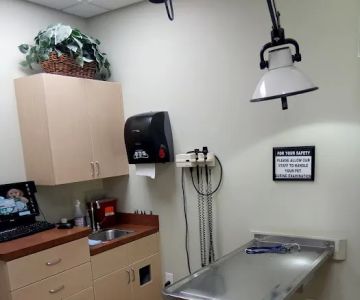Can You Donate Your Pacemaker to a Veterinarian? Exploring the Possibilities
When someone passes away, the question of organ donation often arises. However, one organ that isn't typically considered for donation is the pacemaker. As a result, you might be wondering, "Can I donate my pacemaker to a veterinarian?" In this article, we'll explore the answer to that question, along with relevant information on pacemaker use in humans, animals, and the process of donating or repurposing medical devices like pacemakers.
Understanding the Function of Pacemakers in Humans
Before diving into the concept of donating a pacemaker to a veterinarian, it's essential to understand what a pacemaker does. A pacemaker is a small medical device implanted in the chest to regulate the heart's rhythm. It's typically used for patients whose heartbeats are too slow or irregular. The device uses electrical pulses to prompt the heart to beat at a normal rate, ensuring proper blood circulation and avoiding complications like heart failure or stroke.
Can a Pacemaker Be Reused in Veterinary Medicine?
The idea of donating a pacemaker to a veterinarian is interesting but not entirely feasible in its current form. In veterinary medicine, pacemakers can be used to treat certain heart conditions in animals, especially in dogs and cats. However, there are significant challenges when it comes to reusing a pacemaker from a human donor.
One of the main issues is that the technology and requirements for pacemakers in animals are very different from those used in humans. For example, the size and capacity of the pacemaker need to be compatible with the animal's size and heart needs. Unfortunately, human pacemakers are typically not designed to meet the specific needs of animal physiology.
The Challenges of Donating a Pacemaker to a Veterinarian
There are several factors that prevent a human pacemaker from being directly donated for veterinary use. First and foremost, the pacemaker technology is tailored to human anatomy and heart rhythms. The device might not be equipped to handle the variations in animal heart rates, sizes, or overall body conditions. Furthermore, safety regulations regarding medical device reuse pose another significant barrier. Pacemakers are classified as implants, and they must meet strict health standards, especially when it comes to preventing infection or other complications.
Moreover, veterinary professionals typically prefer pacemakers specifically designed for animals to ensure that the procedure and the post-operative care are as effective and safe as possible. While it might sound noble to donate a pacemaker to a veterinarian, the reality is that repurposing such medical equipment is generally not an option.
What Happens to Used Pacemakers?
Instead of being donated to a veterinarian, most pacemakers that are removed from patients are safely disposed of or recycled through specialized programs. Many medical device manufacturers have established programs that ensure pacemakers are returned for safe handling. Some devices can even be repurposed or recycled for parts that are used in other medical devices. These programs ensure that used pacemakers are disposed of in ways that are both environmentally friendly and legally compliant.
The Future of Medical Device Donation
As technology advances, the future of medical device reuse, including pacemakers, may evolve. Currently, there are no systems in place to directly donate a pacemaker to a veterinarian. However, researchers are continually exploring ways to repurpose medical devices, and there may be new developments in the future. In the meantime, it's crucial to follow the regulations for medical device donation and disposal, ensuring that both human and animal welfare are taken into consideration.
For those interested in donating medical devices or learning more about their reuse in various fields, it's best to consult with healthcare providers or specific donation programs that specialize in medical equipment.
If you're looking for a way to help animals in need, consider donating to animal rescue organizations or supporting programs focused on veterinary health care. Your contributions, whether through donations or spreading awareness, can have a lasting positive impact on both human and animal lives.











